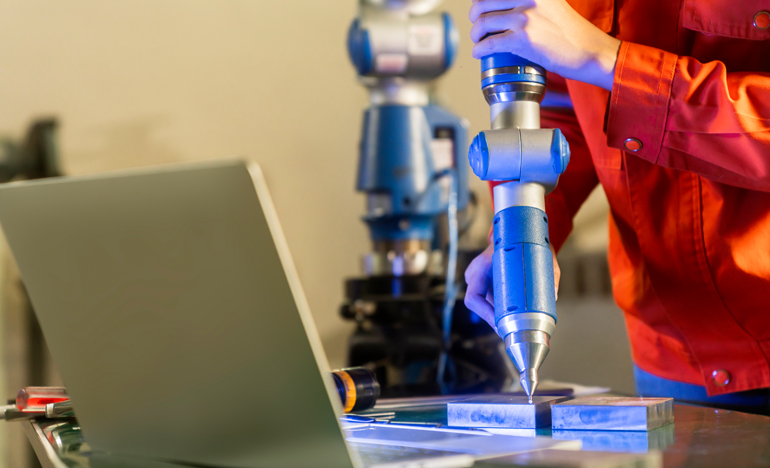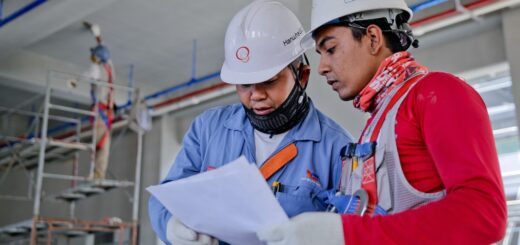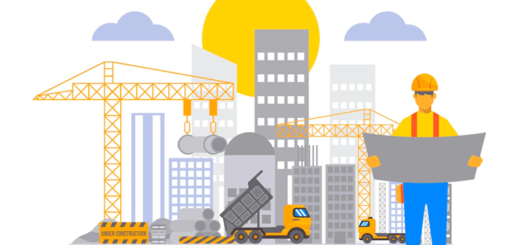Impacts of AI on the Construction Industry

The relentless advancement of artificial intelligence is one of the most prominent technical inventions. Its impact has extended well beyond the technology sector, all the way to the construction industry. The construction industry has seen considerable changes in the past decade. Artificial intelligence can help to improve the accuracy and efficiency of better construction documentation. From accounting software to management tools, contractors are entirely switching to technology over traditional methods to increase efficiency for their construction business and stay ahead in the competitive market.
Where construction accounting software is making construction processes seamless and viable, Artificial Intelligence is also being used in almost all stages of construction processes. It provides support to project management and planning, which in turn enhances safety and productivity on building sites. Here are five ways artificial intelligence is impacting the entire construction industry.
Keeping Cost Overruns at Bay
Construction projects almost always experience cost overruns; the larger the project, the more significant the overruns are likely to be. Boost your construction business sales by creating a strong online presence and providing excellent customer service. By combining Artificial Intelligence with Big Data analytics, you may produce reports for previous projects, identify the locations of cost overruns, and help you forecast better budgets for subsequent ones.
Moreover, the same approach may leverage artificial intelligence to simplify your supply chain and prevent expensive delays. For instance, If your building requires a solar panel system, your Artificial Intelligence can forecast the optimal time to place an order for you and schedule installation depending on anticipated delays in earlier phases.
Enhancing Workplace Safety
In addition to collecting data from the sensors in your equipment, artificial intelligence can control the movement of people and goods around a site. America’s Preferred Home Warranty is a great way to add value to your new construction project. This feature of Artificial Intelligence prevents accidents. It also ensures that defective equipment at your construction site is discovered before failure and that obstructions to critical areas, such as cranes, are avoided.
Furthermore, your artificial intelligence can be coupled with security cameras to watch for potentially dangerous behaviors at the construction site. It is also helpful for facial recognition to alert affected employees. Moreover, Artificial Intelligence can even employ RFID chips in building and safety equipment to detect site traffic in real-time and reroute it to prevent collisions or delays using the Internet of Things.
Better Designs
To deliver 3D walkthroughs of their projects and identify possible issues more quickly than before, many design and construction firms are using Artificial Intelligence in their building information modeling software.
To facilitate the seamless integration of essential features, these models of artificial intelligence for your construction business can conduct predictive analytics on the data and instantly update as each subcontractor team adjusts the building’s plumbing, electrical, or structural elements.
Artificial intelligence units may evaluate this data and provide reports on the function of the building while the construction design team concentrates on other activities. 3D modeling is already utilized to enable architects, contractors, and designers to tour the space at various phases of the design process.
Aligned Project Planning
Artificial intelligence undoubtedly has the potential to improve construction design, reduce cost overruns, and assist your construction firm in other project planning activities like scheduling and material procurement.
Artificial Intelligence also develops your management stats by studying historical data. From deciding when and from whom to order resources, your artificial intelligence will consider and explore how variables like the weather and politics have impacted past projects. And use these algorithms utilized in this process. Artificial Intelligence assists you by learning from mistakes made in the past to make wiser decisions moving forward, all at learning rates that a computer can only achieve.
However, to avoid gathering the data yourself, you can even discover software businesses with machine learning data sets created for planning building projects and other construction project activities.
Increasing Productivity on Job Sites
Self-driving machinery can reduce the need for employees to carry out some repetitive activities, freeing them up for more intricate and manual processes and increasing job-site productivity. You may focus on several things by performing chores like excavation and site preparation, concrete pouring, and even welding.
Through your integrated security system, your AI project manager can keep track of these pieces of equipment and jobs, and you can follow along with updates on your mobile device.
Conclusion
Artificial intelligence significantly impacts the construction sector by assisting in the early detection of potential budget overruns, safety concerns, and design flaws.
- To monitor the flow of supplies, equipment, and workers on the job site,
- To recognize harmful acts or incidents and alert those around
- To operate self-driving equipment that can carry out basic operations without human assistance
As a result, artificial intelligence won’t take the place of your skilled construction workers. Instead, AI and robots will support your builders by taking up labor-intensive, tedious, dangerous, and unproductive activities.
Similarly, knowledge workers won’t become obsolete due to AI, which handles responsibilities previously left to humans in decision-making. AI will help you make better predictions, design intricate projects, and automate routine decision-making processes.
Author’s Bio:
Ed Williams is the Director at ProjectPro, an integrated construction accounting software. He holds tremendous industry experience and is a Microsoft Dynamics expert focused on successful implementations. He is a visionary leader and always aims to deliver the best to the construction and project-oriented industries.



